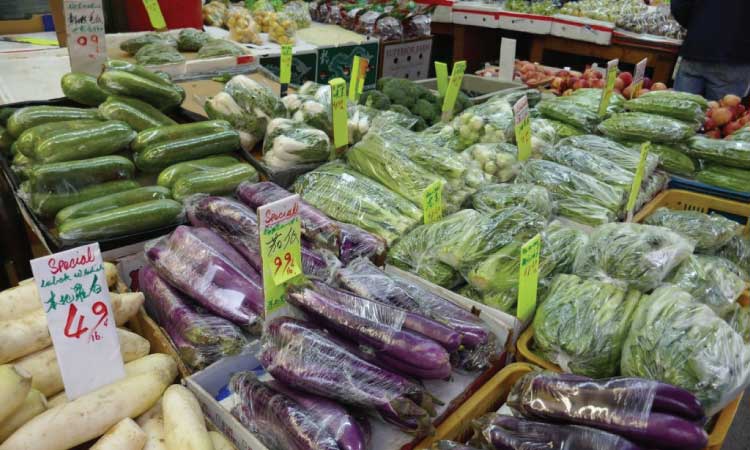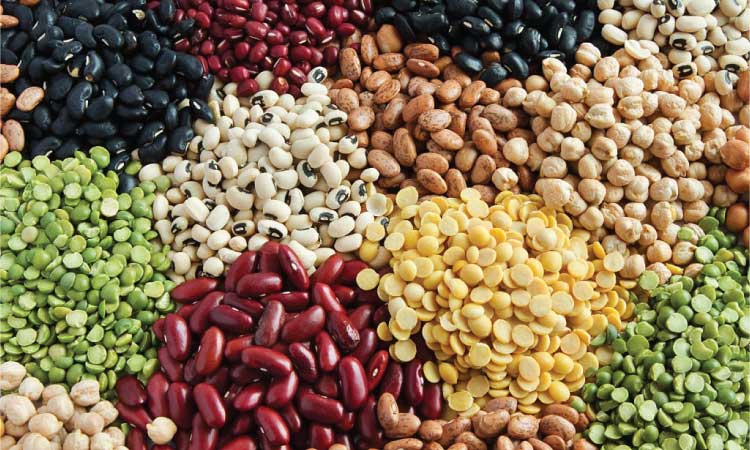There are foods that boost your fertility. On the other hand, there are also foods that cause female infertility and should be avoided while trying to conceive. There are so many factors that affect fertility in females, and the wrong food is one among them.
Various medical issues like endometriosis, uterine abnormalities, thyroid issues, cervical abnormalities, pelvic adhesions, etc. can affect females’ fertility. Lifestyle disorders like alcohol consumption, smoking, drug abuse, unhealthy food habits, diabetes, obesity, etc. can also affect fertility both in males and females.
11 Foods That Should Be Avoided When Trying To Conceive
As we all know, while trying to conceive, one should eat plenty of fruits and vegetables and should stick to whole grain foods. However, it is equally or perhaps more significant to avoid certain foods that trigger infertility in females.

It is important to abstain from food that contains artificial ingredients, synthetic hormones, and potential toxins. It is also said spicy foods are to be avoided while trying to conceive because they tend to prevent implantation,
Foods to avoid while trying to conceive and foods to avoid while pregnant are more or less the same. Find out 11 foods that cause female infertility and should be avoided while trying to get pregnant.
1. Foods with high sugar and carbs
Eating foods high in sugar and carbs while trying to conceive, especially if you have PCOS, will make conception harder. These are one of the most important groups of foods to avoid when trying to get pregnant.
Calculate Due Date With Conception Date
Foods with high sugar and carbs could result in reduced insulin sensitivity (insulin resistance) and hormonal imbalance. Studies show that insulin resistance can lead to fertility issues.
2. Foods that are fatty and greasy
Regular consumption of fast food that is fatty and greasy increases the risk of infertility in women. Women who rely mainly on fast food take more time to conceive than those who eat it once in a while. Research shows that infertility risk rises to 8 to 16 % in women who eat fast food regularly.
Regular fast food consumption can also pave the way to obesity. One who is addicted to fast food fails to eat other nutritious food. This makes the body devoid of certain essential nutrients, thereby adversely affect reproductive health.
Related Reading: Garlic And Fertility – How To Use The Herb For Best Results
3. Foods that have food additives
Many of the food additives, if consumed a lot, have been shown to disrupt the endocrine system and contribute to infertility. For instance, MSG, a common food additive found in some brands of chips, processed food, and snacks, can take a toll on fertility in both men and women.
4. Seafood high in mercury

Due to a different kind of pollutions, harmful heavy metals like mercury are getting into the ocean. Several kinds of fish, such as tuna, swordfish, etc. have been detected to have high mercury levels.
Higher seafood consumption can result in the accumulation of mercury in the body. Studies show that increased mercury level contributes to infertility both in male and female.
5. Foods high in trans fat can cause infertility issues
Transfats are liquid vegetable oils that go through a chemical process called hydrogenation to become solid. This chemical process increases its shelf life as well. It is commonly found in baked products, fried foods, fast foods, and certain chips.
Research has shown that foods with Transfat extensively contribute to infertility in women.
6. Beverages that contain soda and caffeine can make it tough to conceive
Studies show that caffeine and aerated beverages can take a toll on fertility. Aerated beverages are loaded with artificial sweeteners, artificial flavors, and a high level of preservatives. All these factors can bring about endocrine disorder and hormonal imbalance leading to infertility.
Related Reading: How To Prepare Body For Pregnancy After 30
Another study shows women who consume more than a cup of coffee per day decrease her chance of getting pregnant significantly (around 50%). Decaffeinated and half caffeinated coffee, on the other hand, cause fewer fertility issues.
Don’t forget caffeine is not restricted to coffee. It is also found in chocolate, tea, and black beverages like cola.
7. Foods with high glycemic index
Foods that make your blood sugar spike are foods with a high glycemic index. These foods can contribute to infertility.
Foods with a high glycemic index are promptly digested and absorbed. This results in a rapid rise in blood sugar that triggers insulin resistance. Insulin resistance brings about ovulation irregularly or anovulation, thereby contributing to infertility.
A recent study conducted in this field shows that eating food with a high glycemic index decreases the chances of conceiving even if they are not diabetic.
8. Foods with potential contaminant

Over the years, the usage of pesticides and insecticides has increased significantly, contaminating otherwise nutritious fruits and vegetables. Besides chemical contamination by pesticides, there are several other factors that bring about food contamination.
Food can be contaminated by means of other organisms like microbes, pests, and pets (biological contamination). Cross-contamination happens when pathogens contaminate the food through contacts.
Improperly stored, cooked, and handled food can be contaminated. Studies show that consuming contaminated food and exposure to pollution can trigger infertility. Drinking chlorinated water can take a toll on fertility as chlorine and infertility are closely linked.
Related Reading: 9 Signs Of Ovulation To Know Your Most Fertile Time
9. Low-fat dairy products
According to studies, women who rely more on low-fat dairy products have an increased risk of anovulatory infertility- infertility happens due to lack of ovulation- than women who consume whole-fat dairy products. The risk is as high as four-fifths.
On the other hand, this research also found that women who consume at least one serving of whole-fat dairy food every day bring down their risk of anovulatory infertility more than 25%.
Now let us see why full-fat and low-fat dairy products have different effects on ovulation? All milk, let it be cow’s milk, goat’s milk, or human milk, contains hormones like androgens, estrogens, and progesterone in varying amounts.
Estrogen and progesterone are fat-soluble hormones. Hence, they will be attached to the fat globules of the whole milk. By skimming the milk, these hormones also get removed along with the fat.
What is left in the skimmed or low-fat milk are androgens (male hormones). This increased level of male hormone in low-fat dairy can impair ovulation.
10. Raw foods and foods made from unpasteurized milk
Try to avoid raw food when you are trying to conceive. Raw foods might carry dangerous bacteria like salmonella and toxoplasmosis, which can hamper fertility. Also, raw food slows down the process of digestion.
According to TCM (Traditional Chinese medicine) principle, cold and raw foods act as contraceptives, no matter how many nutrients they hold. Raw foods demand the stomach to generate more heat to warm up the food to break it down.
As the stomach is forced to generate excess heat, it can result in a subtle cooling of the inner body. Over a period, this can takes a toll on different body systems, including reproductive health.
Likewise, certain vegetables and fruits are also not safe to have in raw form due to the higher chance of chemical contamination. If you eat them raw, these chemicals get into your body. Exposure to certain chemicals can trigger infertility.
Related Reading: 7 Best Foods To Increase Fertility
Avoid eating sprouts while trying to conceive. This is because the damp conditions that are necessary to grow sprouts are also ideal circumstances for bacteria to thrive. These bacteria can hamper with conception.
Bacteria like salmonella, listeria, and E. coli. can potentially bring about foodborne illness. Some of these bacteria can potentially par the placenta and adversely affect the health of the uterus. This can affect the reproductive health of women.
Similarly, unpasteurized milk and milk products like soft cheese can affect the fertility of the woman. Listeria, the bacteria that thrive in unpasteurized milk, can contribute to infertility in women.
11. Soyfoods and peas

Soy foods contain estrogen-like substances called phytoestrogen. According to studies, a very high phytoestrogen level interferes with the ovulation process and contributes to infertility.
Eating less amount of soy food once in a while may not cause harm. However, it is better to stay away from soy food if you are undergoing fertility treatments.
It is also very important to completely avoid genetically modified soy( as in soy protein bar, soy-based cereals, etc.) as it can cause issues like endometriosis, hormonal changes, and thereby contribute to infertility.
A study shows that a natural chemical found in peas called m-xylohydroquinone- obstructs the sperm from fertilizing an egg. Peas thus play as natural contraceptives, and women who eat peas regularly significantly reduce their chances of conceiving.
Let us wrap it up
Getting pregnant is not an easy task. There’s more to it than tracking the menstrual cycle, finding the day of ovulation, and planning pregnancy accordingly. The body should be ready health-wise to support life.
Anything that hampers with reproductive health can lead to infertility. You cannot prevent infertility due to physical reasons. That has to be taken care of clinically. However, a healthy lifestyle is something you can practice.
It is important to know the foods to avoid for boosting your fertility. This will increase your chances of getting pregnant. All the best to fast conception!
